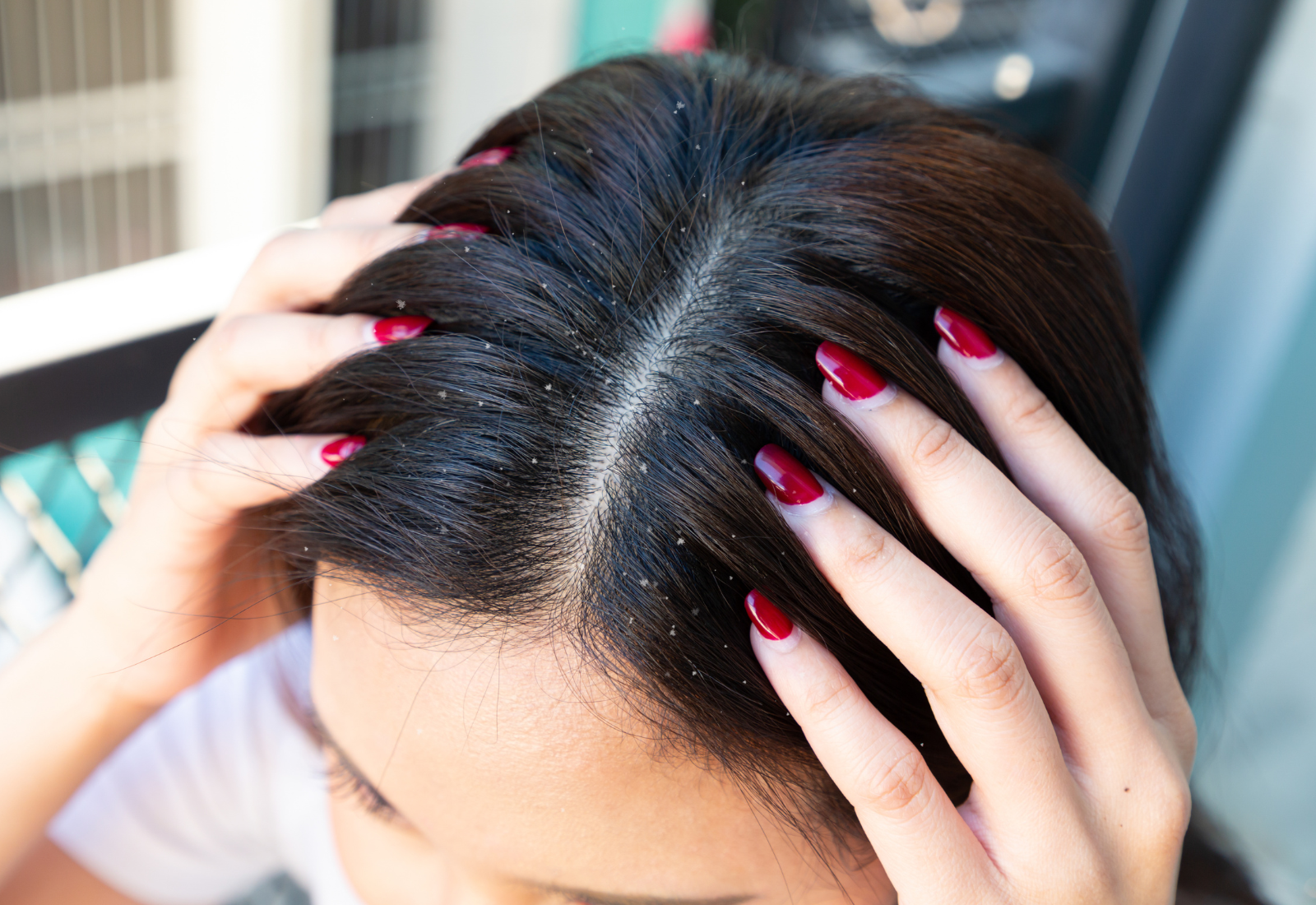Dandruff and itchy scalp are common conditions that can be both embarrassing and uncomfortable. While they are not usually serious, they can be bothersome and persistent if left untreated. Fortunately, there are many remedies and treatments available to help alleviate these symptoms and restore scalp health. Read on to learn about the causes of dandruff and itchy scalp, as well as effective remedies and prevention strategies to keep your scalp feeling healthy and itch-free.
Understanding Dandruff and Itchy Scalp
Dandruff
Dandruff is a common scalp condition characterized by the shedding of dead skin cells from the scalp. It often presents as white or yellow flakes that can be noticeable on the hair and shoulders. Dandruff can be caused by various factors, including:
- Dry scalp
- Excess oil production
- Fungal infections
- Sensitivity to hair care products
Itchy Scalp
Itchy scalp, also known as scalp pruritus, is a sensation of itching or irritation on the scalp. It can occur due to:
Persistent itching can lead to scratching, which may exacerbate the problem and cause further irritation or inflammation.
Common Causes of Dandruff and Itchy Scalp
- Dry Scalp: Dry scalp occurs when the skin on the scalp lacks moisture, leading to flakiness and itching. Factors such as cold weather, indoor heating, harsh hair products, and over-washing can contribute to dry scalp.
- Excess Oil Production: Seborrheic dermatitis is a common condition characterized by excessive oil production and inflammation of the skin, leading to dandruff and itchy scalp. It is often exacerbated by hormonal changes, stress, and certain medical conditions.
- Fungal Infections: Fungal infections such as Malassezia can overgrow on the scalp, leading to inflammation and dandruff. These fungi feed on the natural oils produced by the scalp, causing irritation and flaking.
- Allergic Reactions: Sensitivity to certain hair care products, such as shampoos, conditioners, or styling products, can cause allergic reactions and lead to itching, redness, and flaking of the scalp.
- Underlying Skin Conditions: Conditions such as psoriasis, eczema, or dermatitis can affect the scalp, causing inflammation and flaking. These conditions may require medical intervention for proper management.
Effective Remedies for Dandruff and Itchy Scalp
Use Anti-Dandruff Shampoos
Choose shampoos specifically formulated to treat dandruff, containing active ingredients such as:
- Zinc pyrithione
- Selenium sulfide
- Ketoconazole
- Coal tar
Use these shampoos regularly to help control dandruff and reduce itching.
Moisturize the Scalp
Keep your scalp hydrated by using a moisturizing conditioner or scalp treatment. Look for products containing ingredients like aloe vera, coconut oil, jojoba oil, or shea butter to help soothe dryness and alleviate itching.
Try Natural Remedies
In addition to traditional hair care products, natural remedies offer an alternative approach to treating dandruff and soothing an itchy scalp. Here are a few natural ingredients renowned for their scalp-soothing properties:
- Tea Tree Oil: Tea tree oil is well-known for its antifungal and antibacterial properties, making it an effective remedy for treating dandruff caused by fungal infections. Dilute a few drops of tea tree oil with a carrier oil such as coconut oil or olive oil, and massage it into your scalp. Leave it on for about 30 minutes before shampooing as usual.
- Apple Cider Vinegar: Apple cider vinegar has natural acidic properties that help restore the pH balance of the scalp and inhibit the growth of dandruff-causing fungi. Mix equal parts apple cider vinegar and water, and use it as a rinse after shampooing. Leave it on for a few minutes before rinsing thoroughly with water.
- Coconut Oil: Coconut oil is a versatile natural remedy known for its moisturizing and antimicrobial properties. Massage warm coconut oil into your scalp, focusing on areas affected by dandruff or itching. Leave it on overnight for maximum benefits, or at least 30 minutes before shampooing.
Avoid Harsh Hair Products
To safeguard your scalp health, steer clear of hair care products containing harsh chemicals or fragrances. These ingredients can trigger scalp irritation and worsen dandruff and itching. Select gentle, sulfate-free shampoos and conditioners specially formulated for sensitive scalps. Look for products labeled as hypoallergenic or designed for sensitive skin to minimize the risk of irritation.
Practice Good Hair Care Habits
Nurture a healthy scalp by incorporating beneficial hair care practices into your routine. Avoid over-washing your hair, as excessive shampooing can strip the scalp of its natural oils and contribute to dryness and irritation. Limit the use of heat styling tools such as blow dryers, flat irons, and curling wands, as high temperatures can damage the hair and scalp. Additionally, shield your scalp from environmental stressors like UV rays and pollution by wearing a hat or using protective hair products containing SPF. By adopting these habits, you’ll promote scalp health and reduce the likelihood of dandruff and itching.
Prevention Strategies for Dandruff and Itchy Scalp
Maintain a Balanced Diet
Eat a balanced diet rich in vitamins, minerals, and omega-3 fatty acids to promote scalp health and reduce inflammation. Incorporate the following foods for optimal scalp nutrition:
- Fatty Fish: Fatty fish such as salmon, mackerel, and sardines are excellent sources of omega-3 fatty acids, which help reduce inflammation and promote overall scalp health.
- Leafy Greens: Leafy greens like spinach, kale, and Swiss chard are packed with vitamins A and C, which are crucial for maintaining a healthy scalp and supporting hair growth.
- Nuts and Seeds: Nuts and seeds such as almonds, walnuts, and flaxseeds are rich in vitamins E and Biotin, as well as zinc, which help nourish the scalp and strengthen hair follicles.
- Whole Grains: Whole grains like oats, quinoa, and brown rice provide complex carbohydrates and B vitamins that support scalp health and regulate oil production.
- Fruits and Vegetables: Incorporate a variety of colorful fruits and vegetables into your diet, such as berries, citrus fruits, carrots, and sweet potatoes. These foods are rich in antioxidants and vitamins that promote scalp health and combat inflammation.
By maintaining a balanced diet rich in these scalp-nourishing foods, you can support overall scalp health and reduce the risk of dandruff and itching. Additionally, staying hydrated by drinking plenty of water is essential for keeping your scalp and hair hydrated from the inside out.
Manage Stress
Stress is a common trigger for scalp conditions like dandruff and itching. When we’re stressed, our body releases hormones like cortisol, which can contribute to inflammation and disrupt the skin’s natural balance. To alleviate scalp discomfort and promote overall well-being, it’s essential to incorporate stress-reducing techniques into your daily routine.
Meditation, yoga, and deep breathing exercises are powerful tools for combating stress and promoting relaxation. Meditation allows you to quiet the mind and focus on the present moment, helping to alleviate tension and reduce cortisol levels. Similarly, yoga combines gentle movements with deep breathing to release physical and mental tension, promoting a sense of calm and well-being. Deep breathing exercises can be practiced anywhere, anytime, and can help regulate the body’s stress response, reducing inflammation and soothing scalp discomfort.
Stay Hydrated
Proper hydration is crucial for maintaining scalp health and preventing dryness and itching. When we’re dehydrated, our skin, including the scalp, can become dry, flaky, and itchy. Drinking plenty of water throughout the day helps to keep your body and scalp hydrated from the inside out.
Furthermore, limiting the intake of dehydrating beverages like alcohol and caffeinated drinks can help prevent scalp dryness and itching.
Avoid Scratching
While scratching may provide temporary relief from an itchy scalp, it can lead to further irritation and inflammation, worsening the condition over time. Instead of scratching, try these gentle alternatives to relieve itching without causing damage to the scalp:
- Gentle Massage: Gently massage the scalp with your fingertips to stimulate circulation and relieve itching. Use circular motions to massage the scalp, focusing on areas of discomfort.
- Cool Compress: Apply a cool, damp washcloth or ice pack to the itchy areas of the scalp to numb the sensation and reduce inflammation. Avoid using hot water, as it can further irritate the scalp.
- Anti-Itch Products: Use over-the-counter anti-itch products containing ingredients like menthol or hydrocortisone to soothe scalp itching. Apply these products sparingly to avoid buildup and scalp irritation.
By avoiding scratching and adopting these gentle alternatives, you can effectively manage scalp itching and prevent further damage to the skin. If itching persists despite these measures, consult a dermatologist for further evaluation and treatment.
Contact Eldorado for Baltimore Hair Loss Solutions
If you’re struggling with dandruff, itchy scalp, or other scalp conditions, Eldorado is here to help. As a leading provider of hair loss solutions in Maryland, we offer a range of treatments and services to address your specific needs. From hair transplants to scalp treatments and hair systems, our experienced team can help you achieve a healthy scalp and beautiful hair. Contact us today to schedule a free hair analysis and take the first step towards a happier, healthier scalp.




